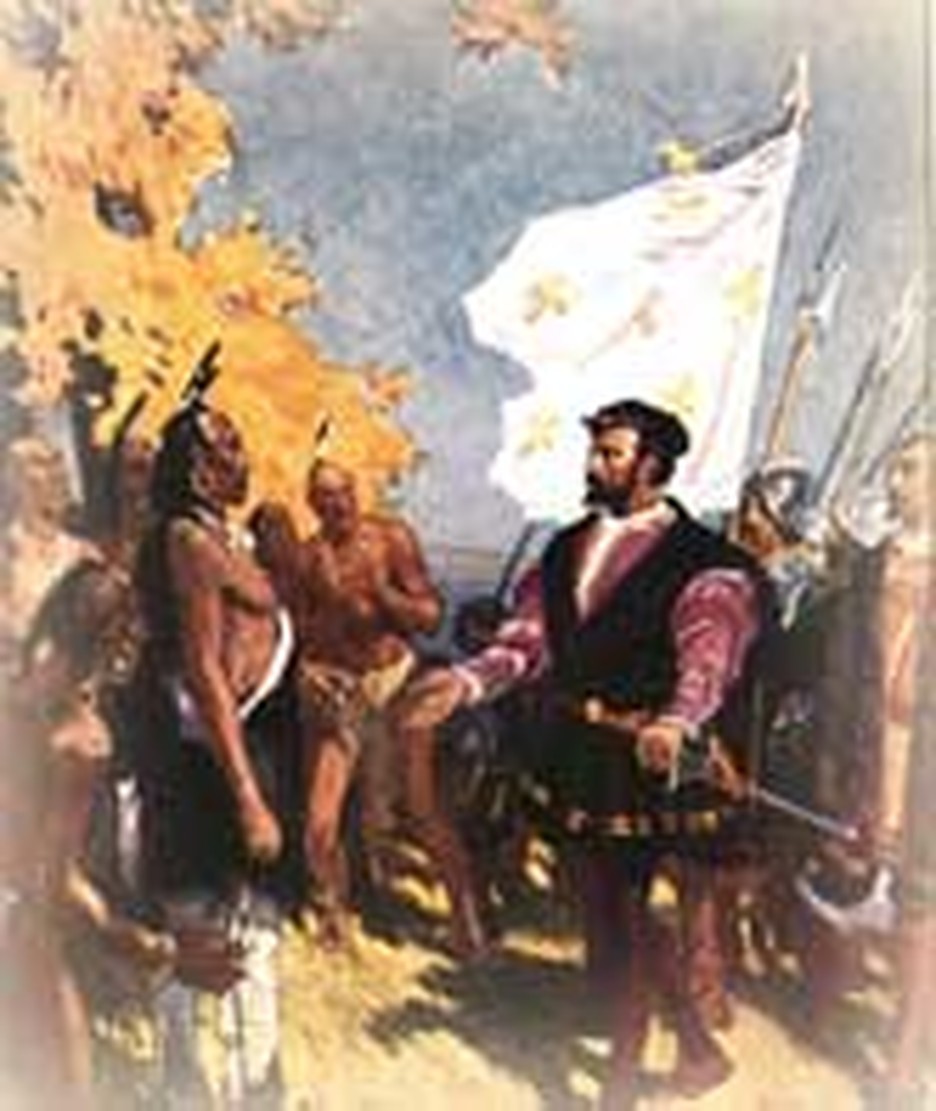
Jacques Cartier grew up as a sailor, married well and became an agent of exploration for King Francis I of France. In April, 1534, he sailed for the New World. Before sailing, his men took an oath that they would "behave themselves truly and faithfully in the service of the Most Christian King." Jacques' name was made immortal by the faithfulness with which he and his men carried out that oath.
On May 10, 1534, Jacques and the sixty-one sailors in his two little ships, sighted Cape Bonavista, "The Cape of Happy Vision." It was his first glimpse of Newfoundland. Ice was so thick along the shore that they could not land. Instead they sailed south and spent a few days repairing their ships. On May 21st, they set to sea again, to chart the coast of Newfoundland.
Jacques was a practicing French Catholic. Consequently, in his explorations of Canada, he treated Native Americans--for the most part--with kindness and integrity. He made a point of sharing the Gospel with them and perpetrated few of the cruelties that were so common in Latin America and would later occur among other North Americans: his worst act seems to have been to capture two Indians for display to France.
His journal reported pious hopes that "with the help of God" he might have success. He had his men confess their sins before sailing; and on land and sea celebrated mass on special days or in gratitude for safety. He erected several crosses, although some were intended to lay claim to lands for France.
At the erection of one of those crosses, on the shore of Gaspe Bay, Jacques wrote, "...we all knelt down together before them [Indian observers], with our hands toward heaven yielding thanks to God: and we made signs to them [the Indians], showing them the heavens and that all our salvation depended upon Him who dwells in them [the heavens]; at which they showed a great admiration, looking first at one another and then at the cross."
One of Jacques' most famous remarks came when he noted the barren terrain of Newfoundland. "In all the north land I did not see a cartload of good earth. To be short, I believe that this was the land that God allotted to Cain." (Cain was cursed for committing the world's first murder).
After leaving Newfoundland, Jacques sailed into the Gulf of St. Lawrence, explored Prince Edward Island and the shores of what are now the provinces of New Brunswick and Quebec. He concluded that if there was a northwest passage, it would be found to the west. A strong wind thwarted his attempts to sail beyond Anticosti Island on his first voyage. However, on his second voyage, he discovered the St. Lawrence River, which became a path into the interior of New France. His faith made him bold and gave him courage in some very dark hours.
Resources
- Leacock, Stephen. The Mariner of St. Malo; a Chronicle of the Voyages of Jacques Cartier. Chronicles of Canada. Toronto: Glasgow, Brook & Co., 1915.
- Various encyclopedia and internet articles.


